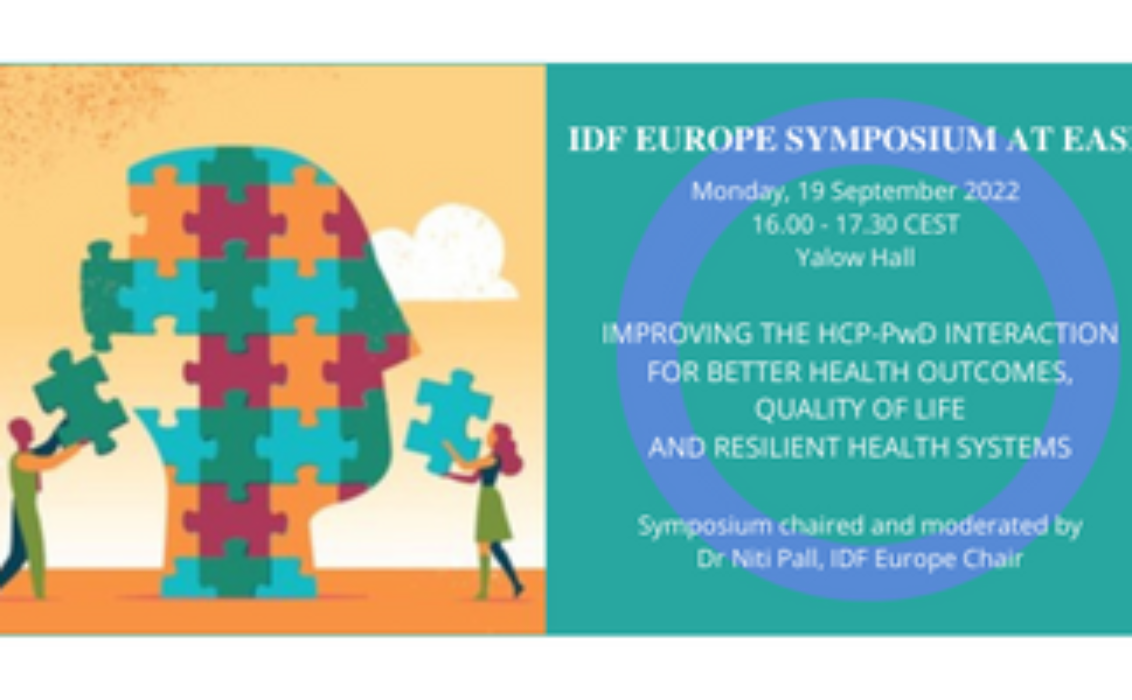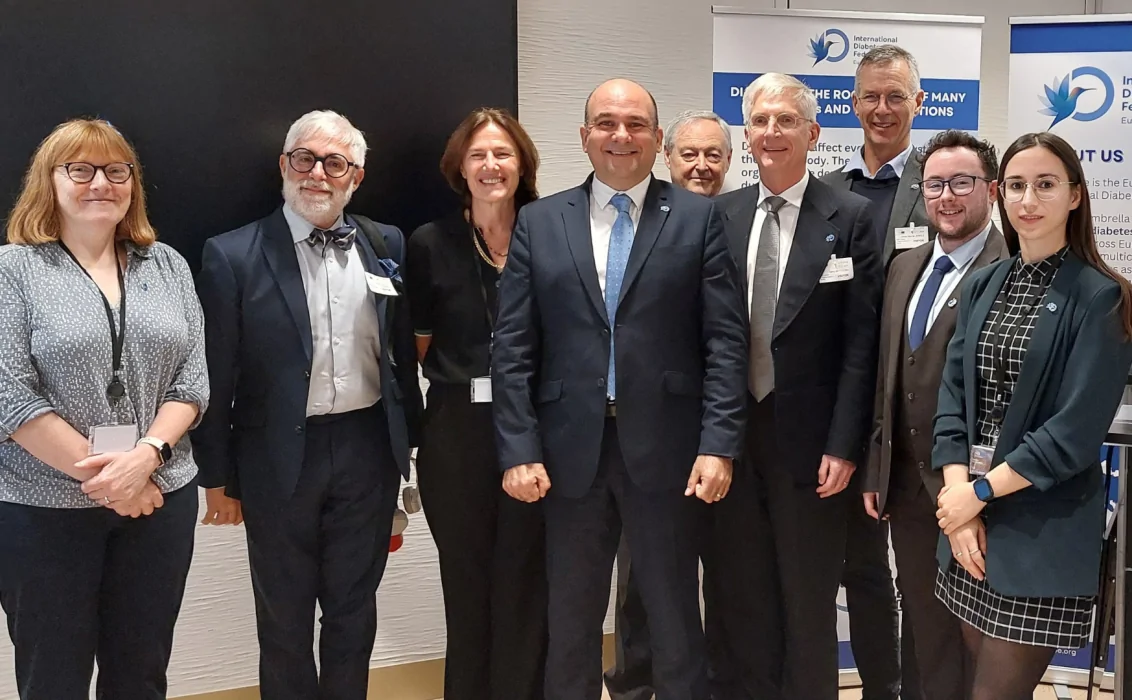IDF Europe’s symposium at EASD 2022 examined the importance of the relationship between healthcare professionals and PwD. This symposium was developed as a response to the priorities that were highlighted by PwD working with IDF Europe on the Type 2 diabetes platform. During initial consultations, a positive relationship with HCPs was raised repeatedly as being of upmost value to their quality of life. Understanding, education, support, and agency for the PwD were all associated with a positive relationship with HCPs charged with delivering care for them. Being satisfied and confident with the relationship led to far better quality of life outcomes for the PwD.
The symposium explored how this could be initiated for every PwD. Panellists were invited from across Europe to give as diverse and expansive an exploration of the topics as possible. While many HCPs understand and acknowledge the importance of establishing positive and supportive relationships with PwD, the matter of whether this is being delivered in a manner that is suitable/accessible/appropriate to the individual was explored by the panellists. The interesting question was also posed as to whether the PwD is still ultimately being forced to adapt to fit into a rigid healthcare system that is ill suited to provide all a PwD needs in order to best manage their long-term diagnosis and minimise as many risk factors as they are able. The discussions also acknowledged that while in some regions, a multi-disciplinary team is a standard composition of multiple HCPs collaborating to deliver support for individuals living with diabetes, there are also many more regions where a single HCP will be solely responsible for the delivery of care and support.
Ensuring a PwD understands the reasons their care is curated in the way it is, with the importance of routine tests being explained in an accessible fashion, was covered during the symposium. Informed PwD are in a better position to make decisions about their day-to-day health and how to minimise the risks living with diabetes brings. No assumptions should be made, on either side, that HCP or PwD knows something because it has been raised once. Recapping previous discussions and ensuring the needs and worries of the PwD are heard and responded to in a consultation results in better Quality of Life outcomes, which in turn results in a PwD with increased resilience and capacity to continue to manage their diabetes and minimise their risk factors.
Watch the recording of the symposium
Download the presentation on the work of IDF Europe’s Platform of People living with Type 2 Diabetes here
Agenda
Symposium chaired and moderated by Dr Niti Pall, Chair, IDF Europe
16.00-16:05: Welcome and introduction, Dr Niti Pall
16.05-16.15: Presentation of the work of IDF Europe’s Platform of People living with Type 2 Diabetes
Download the presentation here
16.15-16.40: Panel 1 – The HCP-PwD relationship: how to support a multi-disciplinary approach?
The panellists discussed the prerequisites to the effectiveness and quality of a relationship which is increasingly becoming multi-dimensional through the move towards integrated, multi-disciplinary care (within a general PHC system/dedicated diabetes clinics), involving a multitude of HCPs across several levels of care.
Panellists
- João Filipe Raposo, Medical Director, APDP (Portuguese Diabetes Association), Portugal
- Elena Shelestova, Diabetes Educator, Georgian Union of Diabetes and Endocrine Association, Georgia
- Yvonne Johns, Type 2 Diabetes Advocate, UK
- Pinar Topsever, Vice-Chair, Primary Care Diabetes Europe, Türkiye
16.40-17.05: Panel 2 – Guidelines from theory to point of care; GUARDIANS FOR HEALTH implementation initiative
The panellists discussed clinical inertia in the management of patients with type 2 diabetes. They considered how the GUARDIANS FOR HEALTH initiative can support the implementation of guideline-directed therapies to reduce the risk of cardiorenal complications.
Panellists
- Naresh Kanumilli, Northenden Group Practice, Manchester, UK
- Konstantinos Makrilakis, IDF Europe Board Member, Greece
- Yvonne Johns, Type 2 Diabetes Advocate, UK
17.05-17.25: Panel 3 – How can traditional and new decentralised clinical trials support PwD empowerment and self-management and improve PwD-HCP interaction?
The panellists discussed the role of primary care professionals in clinical trials and the impact of clinical trials on a PwD’s empowerment and how both aspects can best contribute to the HCP-PwD interaction and improve health outcomes.
Panellists
- Mia Bajramagic, Type 1 Diabetes advocate, Coordinator, Trials@Home Patient Expert Panel, Belgium
- Manuel Cabezas, Julius Clinical Scientific Officer, Netherlands
- Tatjana Milenkovic, IDF Europe Board Member, North Macedonia
17.25-17.30 Wrap-up and Closing remarks – Prof. Nebojsa Lalic, IDF Europe Chair-Elect
You can download the list of the panellists and their short bios here.



